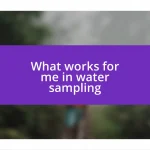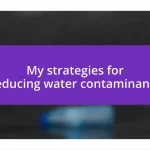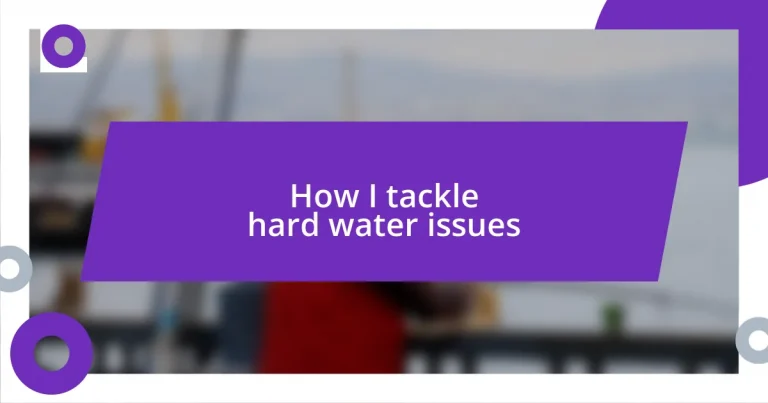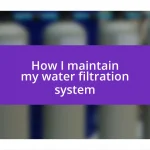Key takeaways:
- Hard water, caused by minerals like calcium and magnesium, affects household appliances, personal care, and cleanliness, creating noticeable issues like stains and buildup.
- Simple home remedies such as vinegar, baking soda, and lemon juice can effectively combat hard water problems and improve overall cleanliness in the home.
- Regular maintenance of water softening systems is crucial; neglecting tasks like replacing salt can lead to significant declines in water quality and increased maintenance challenges.
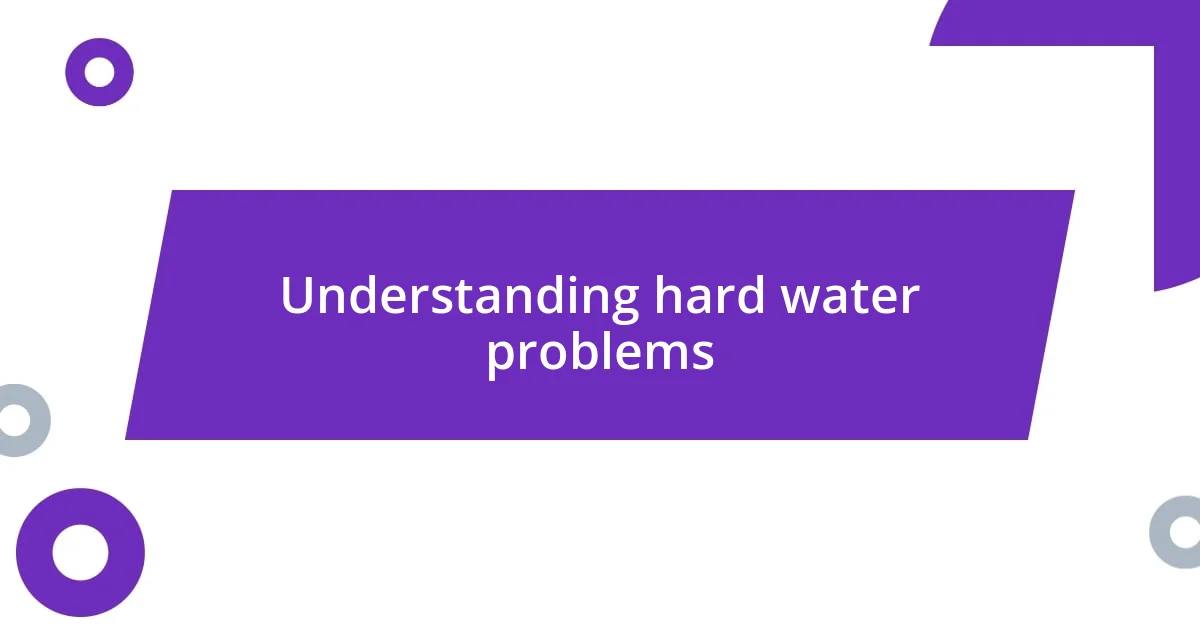
Understanding hard water problems
Hard water can be quite the nuisance, and I experienced this firsthand when I moved into my current home. The mineral buildup in my faucets and showerhead shocked me; I didn’t realize how much of an impact dissolved minerals like calcium and magnesium could have on everyday living. Have you ever noticed those white spots on your glassware or a film on your skin after a shower? That’s hard water leaving its mark.
As I delved deeper into understanding the problem, I learned that hard water affects more than just aesthetics; it can be hard on appliances too. I remember a friend who faced costly repairs for her dishwasher due to the limescale buildup. It made me reflect—could my own appliances be silently suffering? It dawned on me that the consequences of ignoring hard water issues could ultimately shorten the lifespan of important household items.
What’s fascinating is how widespread the problem is; virtually every home experiences some level of hardness in their water supply. I often wonder why more people don’t talk about it. Perhaps it’s the subtle gradual decline in water quality that sneaks up on us rather than a dramatic change. Recognizing hard water problems is the first step toward addressing them and reclaiming the quality of our daily experiences.
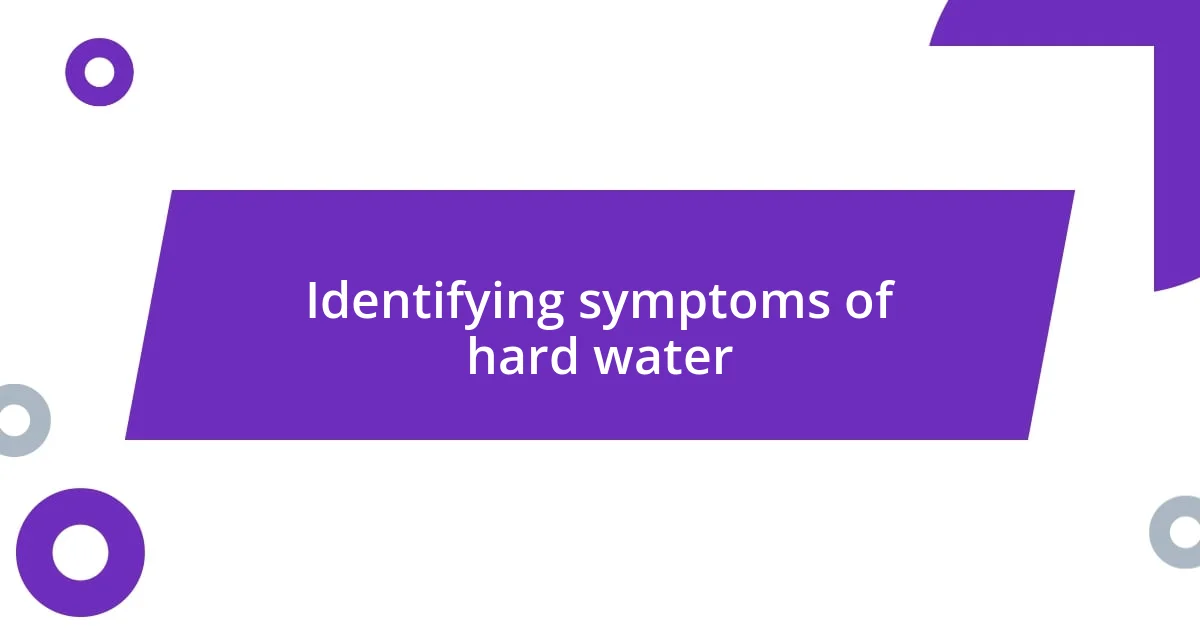
Identifying symptoms of hard water
When I first started noticing signs of hard water, it was more of a gradual realization rather than an abrupt revelation. The water stains on my shower tiles and the dinginess of my laundry made me pause. It’s almost like a bad dream that creeps in without you noticing until one morning you wake up to find it has taken over. Here are some symptoms that signal hard water issues:
- White spots on glassware: After using the dishwasher, I often found my glasses looked clouded. Those spots were a telltale sign of mineral deposits.
- Soap scum buildup: In the shower, I noticed how difficult it was to rinse off soap. It felt like the water was just sliding off, leaving a gritty residue behind.
- Dull laundry: My whites were no longer bright; instead, they took on a greyish hue. It was frustrating to realize that hard water might be the culprit.
- Faucets and fixtures: I could practically see a chalky layer forming on my sink and shower fixtures. This residue accumulated so rapidly that it became a part of my cleaning routine to scrub it off.
Recognizing these symptoms took a bit of investigation, and that process helped me realize just how pervasive hard water can be in our homes. Exploring these signs deepened my understanding of the problem and motivated me to take action, sparking my journey to tackle hard water in my household.
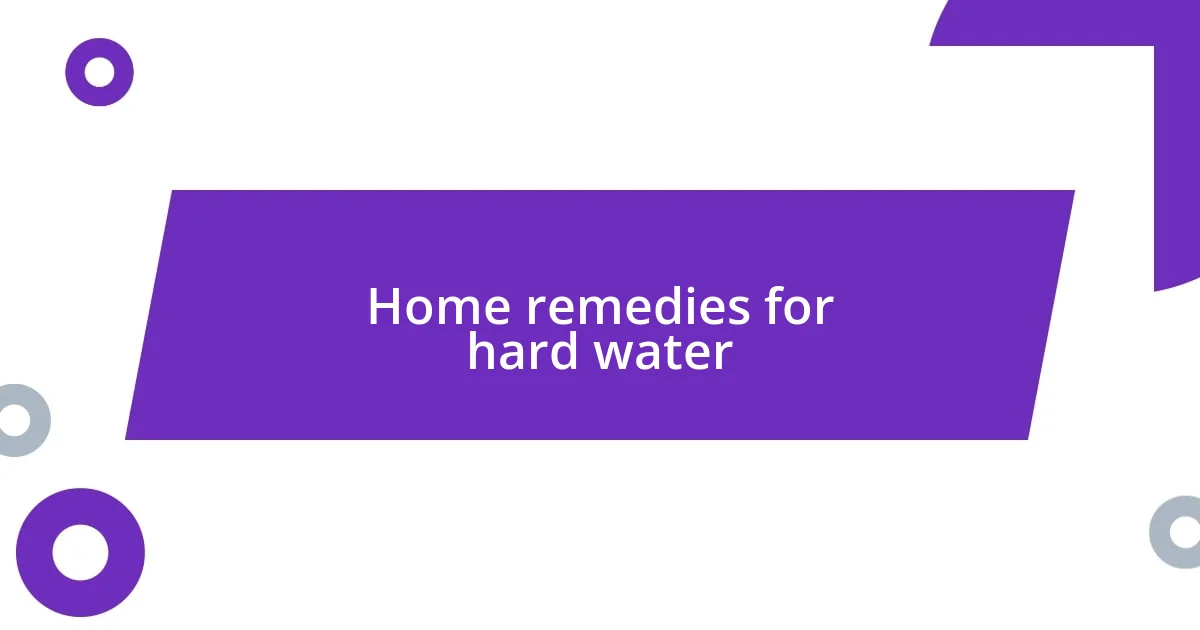
Home remedies for hard water
When I started exploring home remedies for hard water, it felt like a treasure hunt. One remedy that worked wonders for me was using vinegar. After grumbling about how stubborn the mineral buildup was, I decided to soak my showerhead in white vinegar overnight. To my surprise, the next morning, it sparkled as if it were brand new! I often think that such simple solutions often go overlooked.
Another remedy I stumbled upon was baking soda. I once mixed it with vinegar to create a foaming paste for scrubbing my sink. Watching it fizz was oddly satisfying, but the true joy came when I saw a cleaner surface emerge. Honestly, it was like a mini-celebration every time I wiped down my faucets and saw them gleaming without the usual grime.
Lastly, I can’t recommend using lemon juice enough. I started adding lemon juice to my laundry, thinking it might just freshen things up. However, I noticed that my whites came out brighter, and my clothes smelled delightful. It was a delightful surprise that made laundry day feel less like a chore and more like a refreshing ritual. Exploring these home remedies has turned what once felt like a burden into a fun challenge!
| Home Remedy | Description |
|---|---|
| Vinegar | Soaking fixtures helps dissolve mineral deposits. |
| Baking Soda | Makes a great scrub when mixed with vinegar; fizzing action lifts grime. |
| Lemon Juice | Brightens laundry and leaves a fresh scent. |
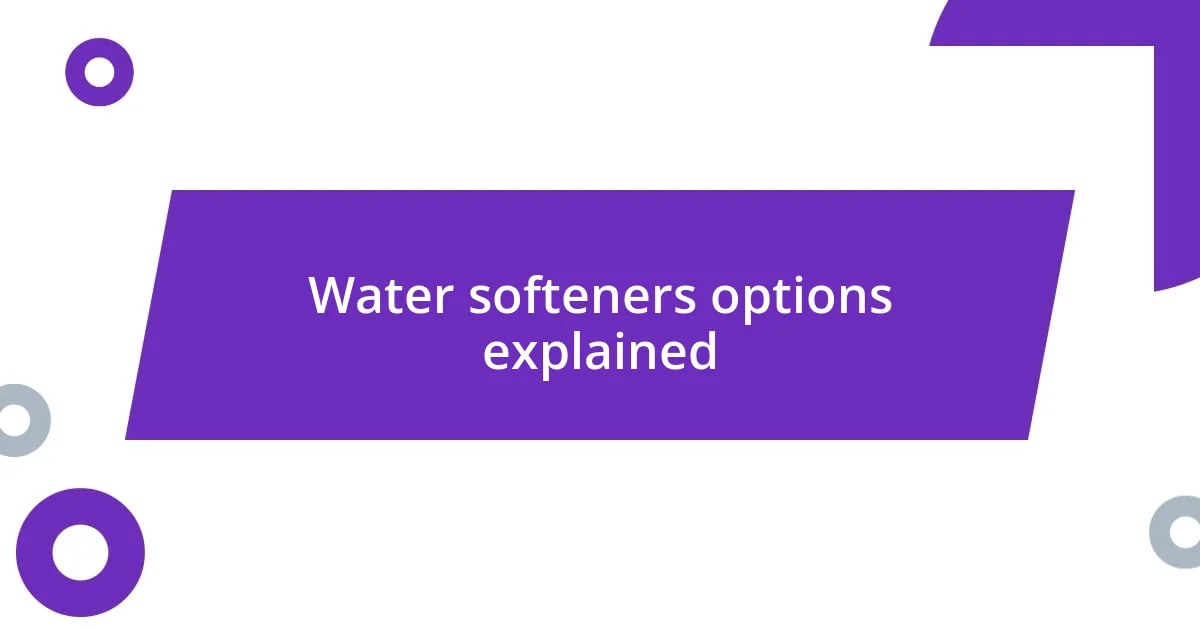
Water softeners options explained
When I started looking into water softeners, the choices were a bit overwhelming. There are primarily two types: salt-based and salt-free systems. I remember feeling a bit lost at first, trying to decipher the best option for my home. Salt-based softeners replace hard minerals like calcium and magnesium with sodium, which effectively eliminates hard water problems, but they do add salt to your water supply. On the other hand, salt-free systems, like descalers, aim to prevent mineral buildup without altering the water’s chemistry. I had to weigh the pros and cons carefully—did I want the complete mineral removal of a salt system or the more environmentally friendly approach of a salt-free alternative?
One day, I decided to have a test run with a portable water softener. I was curious about how much of a difference it would make in my daily routine. I took it with me on a camping trip, and to my delight, my hair and skin felt softer after showering. Let me tell you, after using hard water from a nearby stream, the transformation was remarkable! It made me realize how our water quality can truly affect our comfort and well-being.
Finally, I can’t overlook the importance of maintenance. It’s something many overlook, but trust me, it’s essential. Regularly adding salt in salt-based systems and checking the settings on salt-free systems can mean the difference between smooth sailing and a frustrating battle with hard water. I learned this the hard way when I neglected my system and was hit with that old familiar scale buildup. Taking a proactive approach ensures my water stays soft, which means less hassle and more joy in my daily routine!
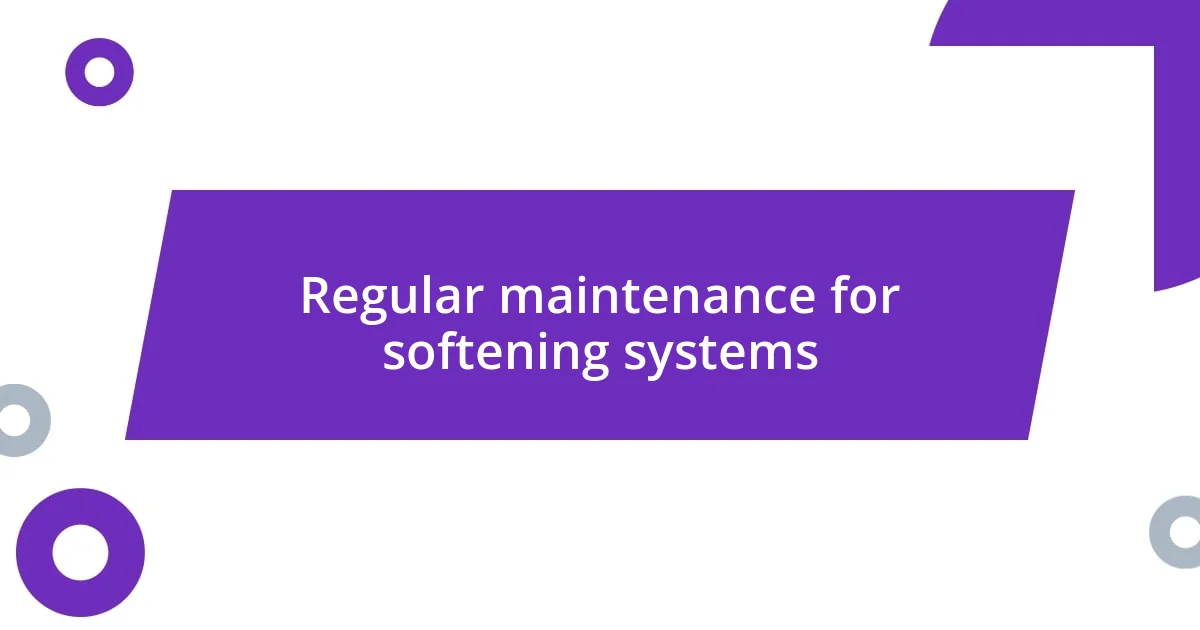
Regular maintenance for softening systems
Regular maintenance of softening systems is vital. I learned this lesson the moment I noticed my clothes feeling a bit too rough after laundry. Just a simple oversight in replacing the salt in my salt-based softener caused a noticeable decline in water quality. It’s surprising how much a tiny detail, like a salt shortage, can impact your daily life, isn’t it?
I now set reminders to check my system at least once a month. This routine not only prevents unexpected issues but also gives me peace of mind. Once, after neglecting my system for weeks, I ended up with a buildup that turned my once sparkling fixtures into a dull reminder of what I had overlooked. It was such a headache cleaning it up that I vowed never to let it happen again.
Don’t underestimate the power of routine! I often think about how I brush my teeth daily without fail; why shouldn’t I approach my softening system with the same dedication? Making maintenance part of my regular household tasks has transformed my experience. It feels good knowing that I’m actively ensuring my home remains a sanctuary from hard water chaos.


